Welcome to Oxford Battery Modelling Symposium (OBMS), a unique event for the battery community. OBMS brings together mathematicians, chemists, physicists and engineers from academia and industry to discuss the latest modelling research and applications. Our philosophy is to invite a small number of outstanding speakers spanning a range of topics from atomistic to continuum modelling, controls and beyond, giving broad and inspiring presentations and open discussions. Our first event in 2019 was attended by 170 people with leading experts including John Newman speaking; our subsequent events were held online during lockdown periods but continued to be wildly popular.
OBMS is taking a pause in 2026 but we hope to be back in 2027 - see you then!
Senior researchers, early career researchers and PhD students, in academia, research institutes, and industry, in the UK and internationally
TBC for 2027
Please contact clementine.hadfield@oerc.ox.ac.uk for general queries about the conference, or events@eng.ox.ac.uk for registration related queries
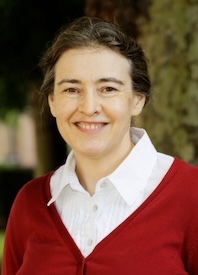
Clare P. Grey DBE FRS is a Royal Society Research Professor and the Geoffrey Moorhouse-Gibson Professor of Chemistry at Cambridge University. After receiving a BA and DPhil from Oxford University, she was a post-doctoral researcher at Nijmegen and at DuPont. She joined the faculty at Stony Brook University (SBU) as an Assistant (1994), Associate (1997) and then Full Professor (2001-2015). She moved to Cambridge in 2009, maintaining an adjunct position at SBU. She is co-founder of Nyobolt, a battery fast-charging company, and Illumion, an optical instrument manufacturer. Recent honours and awards include the Richard R. Ernst Gold Medal (2025), ACS Central Science Disruptors & Innovators Prize (2022), the Körber European Science Prize (2021) and the Hughes Medal, Royal Society (2020).
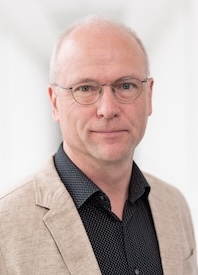
Arnulf Latz is professor for Electrochemical Multiphysics Modeling at the University of Ulm, head of department for Computational Electrochemistry at the Institute for Engineering Thermodynamics (German Aerospace Center in Stuttgart). He is also principal investigator for Electrochemical Multiphysics Modeling at the Helmholtz Institute Ulm for Electrochemical Energy storage, member of the board of directors of the Helmholtz Institute Ulm and principal investigator in the cluster of excellence POLIS for the investigation of post lithium storage devices at the University of Ulm und the Karlsruhe Institute of Technology. His main research interests are modeling and simulation of electrochemical storage and conversion technologies from the nanometer to the cell scale with a focus on rigorous, theory based non-equilibrium thermodynamics approaches and 3D microstructure resolved simulations.
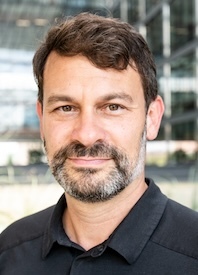
Don Siegel is Professor and Chair of the Walker Department of Mechanical Engineering at the University of Texas at Austin. He also has appointments in the Oden Institute for Computational Engineering and Sciences and the Texas Materials Institute. At UT he is a Temple Foundation Endowed Professor and holds a Cockrell Family Chair for Departmental Leadership. Prior to joining UT in 2021, Prof. Siegel spent 12 years at the University of Michigan, with earlier posts in industry (Ford Motor Company) and at national laboratories (Sandia National Lab and the U.S. Naval Research Lab). Siegel is a computational materials scientist whose research targets the development of energy storage materials and lightweight alloys. He is a recipient of the NSF Career Award and a Gilbreth Lectureship from the National Academy of Engineering.
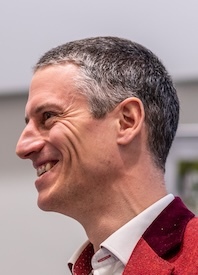
Gregory Offer is Professor in Electrochemical Engineering, Imperial College London and leads the Electrochemical Science & Engineering Group in Mechanical Engineering. Greg’s research is at the interface between the science and engineering of electrochemical devices. Having trained as an electrochemist before moving to engineering, his research portfolio focuses on understanding the limits of operation, degradation mechanisms and failure modes of batteries, supercapacitors and fuel cells in real world applications, and the impacts and consequences on system design, integration and control. He has published >140 peer reviewed journal papers, patents, technical reports and books. Greg is also a co-founder of multiple battery related start-ups, including Cognition Energy Ltd and Breathe Battery Technologies Ltd. Greg has also worked previously as a management consultant and a government advisor. You can find Greg easily, he wears a red jacket.
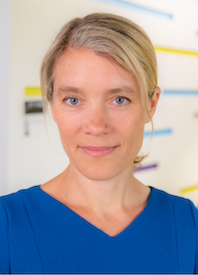
Jessika Trancik is a Professor in the Institute for Data, Systems, and Society at MIT. Her research examines the dynamic costs, performance, and environmental impacts of energy systems to inform climate policy and accelerate beneficial and equitable innovation. Her projects focus on energy services including electricity, transportation, heating, and industrial processes. This work includes solar energy, wind energy, storage, low-carbon fuels, electric vehicles, and nuclear fission. Prof. Trancik received her B.S. from Cornell University and Ph.D. from the University of Oxford as a Rhodes Scholar. She is currently an external professor at the Santa Fe Institute, and was formerly at Columbia University’s Earth Institute, and at WSP International/UNOPS (now Interpeace) in Geneva.
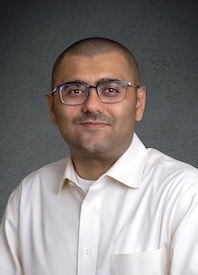
Aashutosh Mistry has been an assistant professor in Department of Mechanical Engineering at the Colorado School of Mines since Aug ‘23. His work is about developing next-generation energy technologies (e.g., batteries), cultivating the workforce supporting these futuristic technologies through research, teaching, mentoring and service, and engaging the public for science advocacy. Aashutosh’ group synergistically combines physics-based theory, machine learning, and controlled experiments to uncover mechanisms limiting predictable device-scale response. Some of the mechanisms they have uncovered are extended mixed conduction in intercalation hosts, physics of unexpected bulk motion of neutral species in polarized electrolytes, the relative importance of various molecular motions in defining electrolyte transport, deleterious effects of non-energy-storing phases in battery electrodes, and viscous effects opposing dewetting of pendant liquid drops.
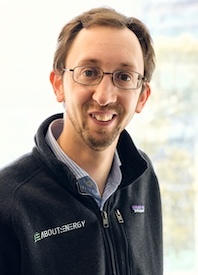
Edmund Dickinson is a specialist in electrochemical theory and Li-ion battery modelling. As Head of Electrochemistry at About:Energy, he defines scientific strategy and best practice for Li-ion cell parameterisation. He also leads collaborative research targeting needed model advances for emerging battery chemistries of choice. Edmund’s background in electrochemistry began with a PhD on fundamental mass and charge transport dynamics of electrolytes with Prof Richard Compton at the University of Oxford. He has since stayed close to both industry and academia in roles as an Applications Engineer at COMSOL, supporting customers with a wide variety of engineering physics, and as the electrochemical simulation lead for the Electrochemistry Group at the UK National Physical Laboratory, before his move to About:Energy in 2022.

Robert Timms is Co-Founder and CTO at Ionworks, and a core developer of the open-source battery modelling framework PyBaMM. Prior to founding Ionworks, he was a Postdoctoral Research Assistant at the Mathematical Institute, University of Oxford, working with Professors Jon Chapman and Colin Please on the Faraday Institution’s Multi-Scale Modelling Project. His research at Oxford focused on developing reduced-order models to explore how heterogeneities in thermal, mechanical, and degradation behaviours influence battery performance and lifetime. Robert’s work has often sat at the intersection of academic research and industrial application, with a focus on making theoretical models more accessible and useful in practice. He completed his PhD at the University of East Anglia in 2018, where he worked on problems related to the safe handling of energetic materials.
The Oxford Battery Modelling Symposium will be held in the heart of Oxford at the Examination Schools with dinner being hosted in the historic setting of Rhodes House.
Map and directions to the Examination Schools
The Examination Schools is situated in Oxford city centre and is a 25 minute walk from Oxford's train station where regular trains run to London Marylebone station or Paddington station, both of which are just a few stops by London Underground to St. Pancras station, where Eurostar train connections are available to France, Belgium and beyond. If you are driving to Oxford, parking in the centre is very constrained and we recommend instead parking at one of the local Park and Ride facilities from which regular buses into the centre of town are available. The easiest airport for access to Oxford is London Heathrow and there is a regular bus service that runs between Heathrow and Oxford (terminal 5 is particularly convenient for this). There are also regular direct trains to Oxford from Birmingham Airport, the journey takes about 60 minutes.
There are a number of hotels in close proximity to the venue, including but not limited to: Mercure Oxford Eastgate Hotel, Museum Hotel, Tower House. You can also book rooms in other Oxford Colleges via Conference Oxford - Magdalen, Oriel, Queens, Corpus Christi, Christchurch, New, Merton and Brasenose are all within close proximity of OBMS25. We strongly recommend booking accommodation well in advance as Oxford gets very booked up in the spring.
Information about how to register coming soon.
Registration is now open, please use this link or the SIGN ME UP! button at the top of the page to register. Registration includes: the two-day workshop, keynote lecture, welcome drinks reception and poster session, lunch and refreshment on both days, participant pack, certificate of attendance. There is a charge of £65 to attend the Symposium Dinner, this can be added on at the time of registration.
Registration is now closed.
Early Bird Rate: Standard registration £330; Student registration £230
After 31st March: Standard registration £380; Student registration £280
If you wish to submit a poster abstract for consideration by the OBMS committee, please visit this Google form, which includes full details of the required process. You will need to login with a Google account (if this is prohibitive let us know). The deadline for poster abstract submissions is 11.59pm BST on May 16th 2025. We will then make decisions quickly and inform people about whether their poster is accepted by Monday 2nd June (earlier if possible). Please do not deviate from or change the template, if you do we will send your abstract back to you. You may include figures as long as the total length remains one page.
If you would like a quote to start the process, please contact us at events@eng.ox.ac.uk.
The Symposium Dinner will take place on the evening of 15th April 2024, and includes a 3 course meal and wine in Lady Margaret Hall's old dining hall.
David Howey
Charles Monroe
Colin Please
Jon Chapman
Please read the Cvent Privacy Notice before registering.
We value the participation of everyone and want all participants to have an enjoyable and fulfilling experience. Accordingly, all participants are expected to show respect and courtesy to other participants throughout the workshop and through all communication channels, including but not limited to OBMS Slack channel and Zoom. To make clear what is expected, all participants, speakers, exhibitors, organisers and volunteers at OBMS are required to conform to the following Code of Conduct. Organisers will enforce this code throughout the event.
SUMMARY
The Oxford Battery Modelling Symposium is dedicated to providing a harassment-free workshop experience for everyone. We do not tolerate harassment of workshop participants in any form.
* All communication should be appropriate for a professional audience including people of many different backgrounds.
* Be kind to others.
* Do not insult or put down other attendees.
* Behave professionally. Remember that harassment and exclusionary jokes are not appropriate at the Oxford Battery Modelling Symposium. Do not send any unprofessional messages to other participants, including but not limited to private messages in Slack and Zoom.
* Participants violating these rules may be asked to leave the symposium at the sole discretion of the organisers.
* Thank you for helping make this a welcoming, friendly event for all.
CLARIFICATIONS
* Harassment includes offensive communication related to gender, sexual orientation, disability, physical appearance, body size, race, religion, sexual images in public spaces, deliberate intimidation, stalking, following, harassing photography or recording, sustained disruption of talks or other events, inappropriate physical contact, and unwelcome sexual attention.
* Participants asked to stop any harassing behaviour are expected to comply immediately.
* Be careful in the words that you choose. Remember that words can be offensive to those around you. Offensive jokes are not acceptable at the Oxford Battery Modelling Symposium. Excessive swearing is not appropriate at OBMS.
* If a participant engages in behaviour that violates this code of conduct, the organisers may take any action they deem appropriate, including warning the offender or expulsion from the symposium.
* Filming/recording of the Oxford Battery Modelling Symposium and sharing or any recordings is strictly prohibited.
CONTACT INFORMATION
If you are being harassed, notice that someone else is being harassed, or have any other concerns, please contact a member of the Code of Conduct Committee via: events@eng.ox.ac.uk
CANCELLATION OF EVENT - IF WE CANCEL
On occasion, unforseen circumstanes may require us to cancel an event. In such circumstances we will give as much notice as possible and endeavour to oganise another event date or refund any fees paid, but no compensation will be paid for any additional costs you may have incurred.
REEFUNDS - IF YOU CANCEL
The following refund policy is applicable for OBMS:
Where notice of cancellation is received, we will refund a proportation of the conference fee. The non-refundable portion of the fee is £100 per person and cannot be reimbursed. Note: the periods reference the day on which we receive your written/emailed notification of cancellation.
NOTICE PERIOD % OF REFUND
More than 14 workings days before the start date - 100% of the refundable portion.
Less than 14 working days before the start date - 0% of the refundable portion.
The refund policy above applies to the registration fee.